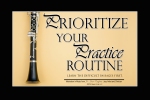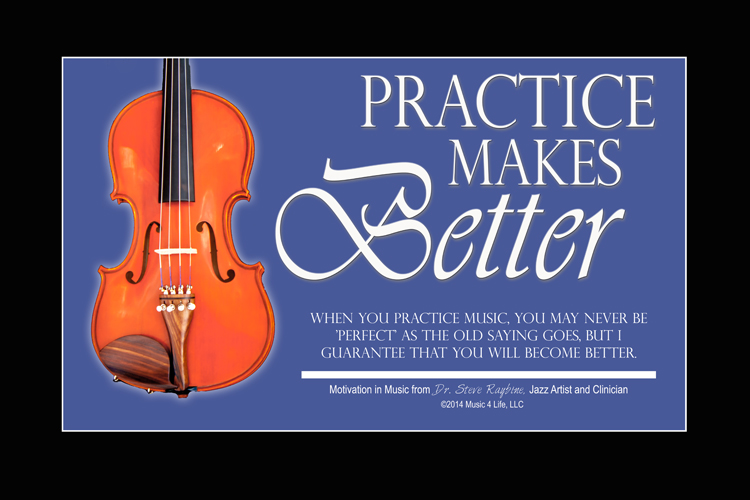How to Motivate Music Students to Practice
One of the primary issues I confront when dealing with students’ music motivation is inertia and its alter-ego, procrastination–the inability to physically enter a practice room facility (too tired; too bored; too busy) with the intention of improving their musical skills and the perpetual postponement of practicing.
&
Students often have “good intentions,” but frequently have poor follow-through as regards committing to their practicing. In essence, they may walk past the practice room without actually entering the door. They become immobilized and unable to make the necessary personal commitment to practicing. As I often say, “If you want to be great, don’t procrastinate!”
Don’t Procrastinate Music Poster for Classrooms
&
What can be done to override this dilemma?
Firstly, the student needs to take ownership of his or her musical development. Teachers can motivate and inspire students to certain degrees, but ultimately the student needs to “buy in” to the philosophy that they are controlling their own destiny based upon how devoted they are or are not to becoming an excellent musician.
If and when the student embraces this concept, then the issues of hard work; discipline and determination become self-motivators. This philosophy also applies to younger students, too. With constant reinforcement and guidance by their teachers on a daily or weekly basis, they become indoctrinated to this mindset and will achieve beyond their expectations.
Hard Work Motivational Wall Poster
&
However, this approach must be reinforced consistently and without excuses or exceptions. Students will test teachers, but the teacher, much like a parent, must remain resolute and unwavering in their convictions and approach.Secondly, students need to learn how to enjoy the process of making music–be it practicing or performing. Obviously, practicing is a necessary prerequisite or prelude to a performance.
If you are not properly prepared to perform your musical selections at the highest possible level, then the overall experience is not a positive one.
Practicing is a necessity and a positive attitude is of critical importance during the practice regimen. If it is fun, you will be inclined to want to practice. Conversely, if you have a poor attitude, practicing will be sheer drudgery.
Attitude is Everything Motivational Poster
&
Ultimately, your mindset is up to each individual, but it helps if your teacher encourages you to enjoy the practice experience.
Tips for Practicing Music
- Incorporate music that is shorter in duration and fun to play into your practice routine. Not every song has to be overly difficult and long. Build your repertoire (memorized pieces) with a cross-section of selections that vary in degrees of complexity. Playing music that you are innately attracted to in various styles and idioms will also motivate you to learn that piece and many others like it.
- Pick some songs that enable you to improvise (use your creativity to manipulate the songs harmonic, melodic and rhythmic parameters). This will also enhance your enjoyment of practicing and making music and may rejuvenate you.
- Play some duets with another instrumentalist or vocalist. Practicing with others can be very invigorating. Remember: music is a communicative art form that is best shared with others.
- Audio or video tape yourself practicing. It’s not only fun to watch and/or listen to yourself practicing, but it’s also an invaluable educational experience.
Pass this onto fellow teachers and if you have some practice tips please leave your idea below.






